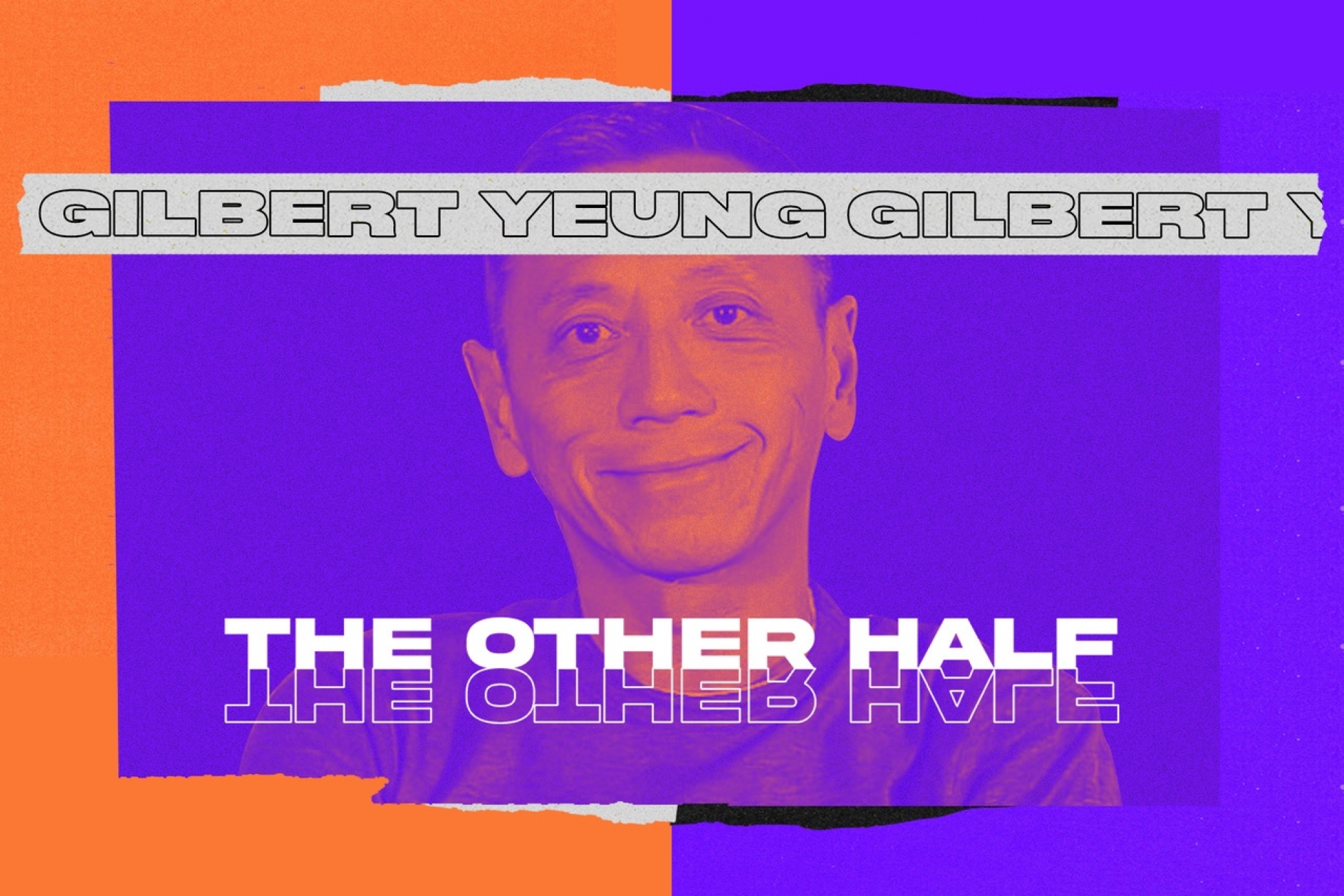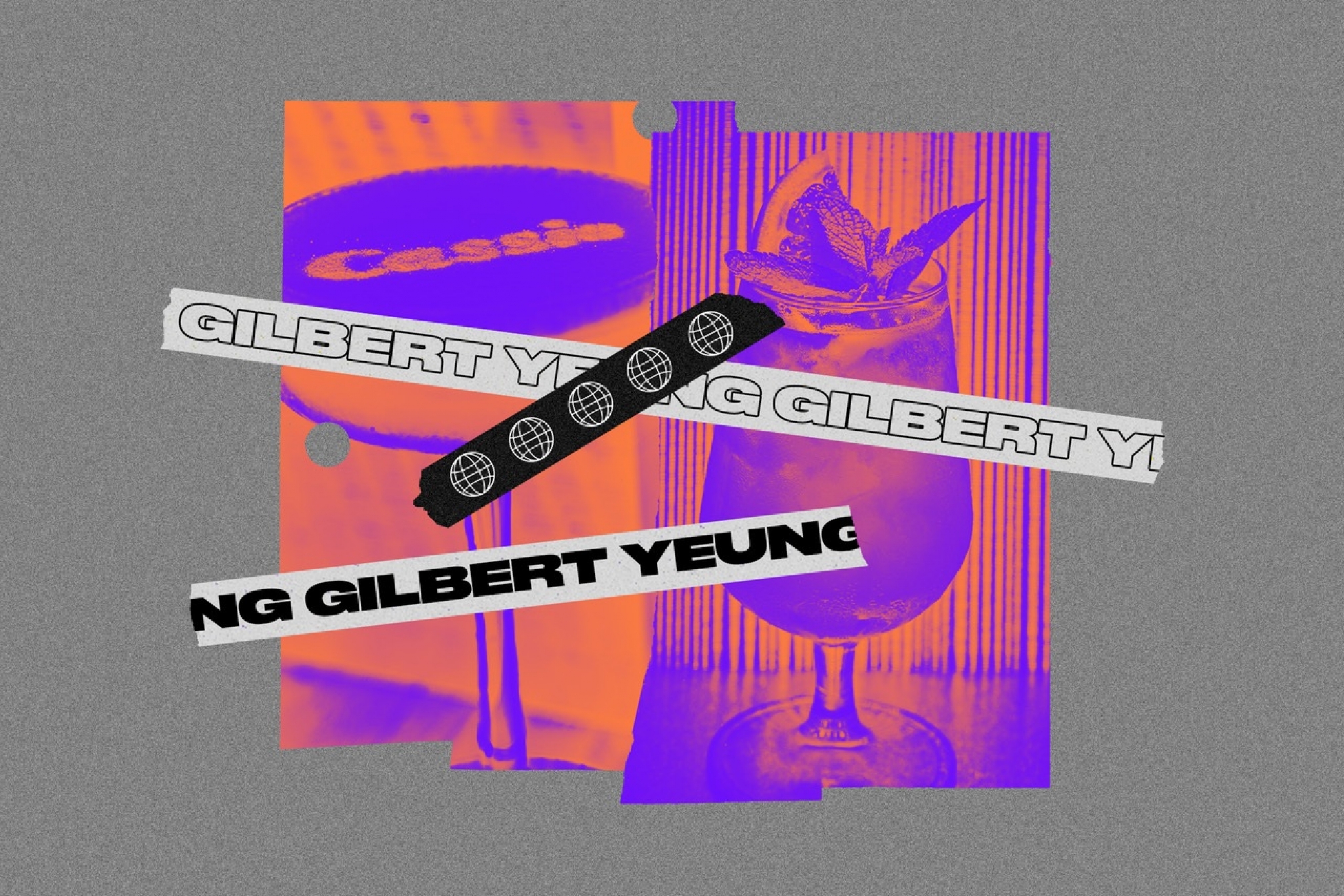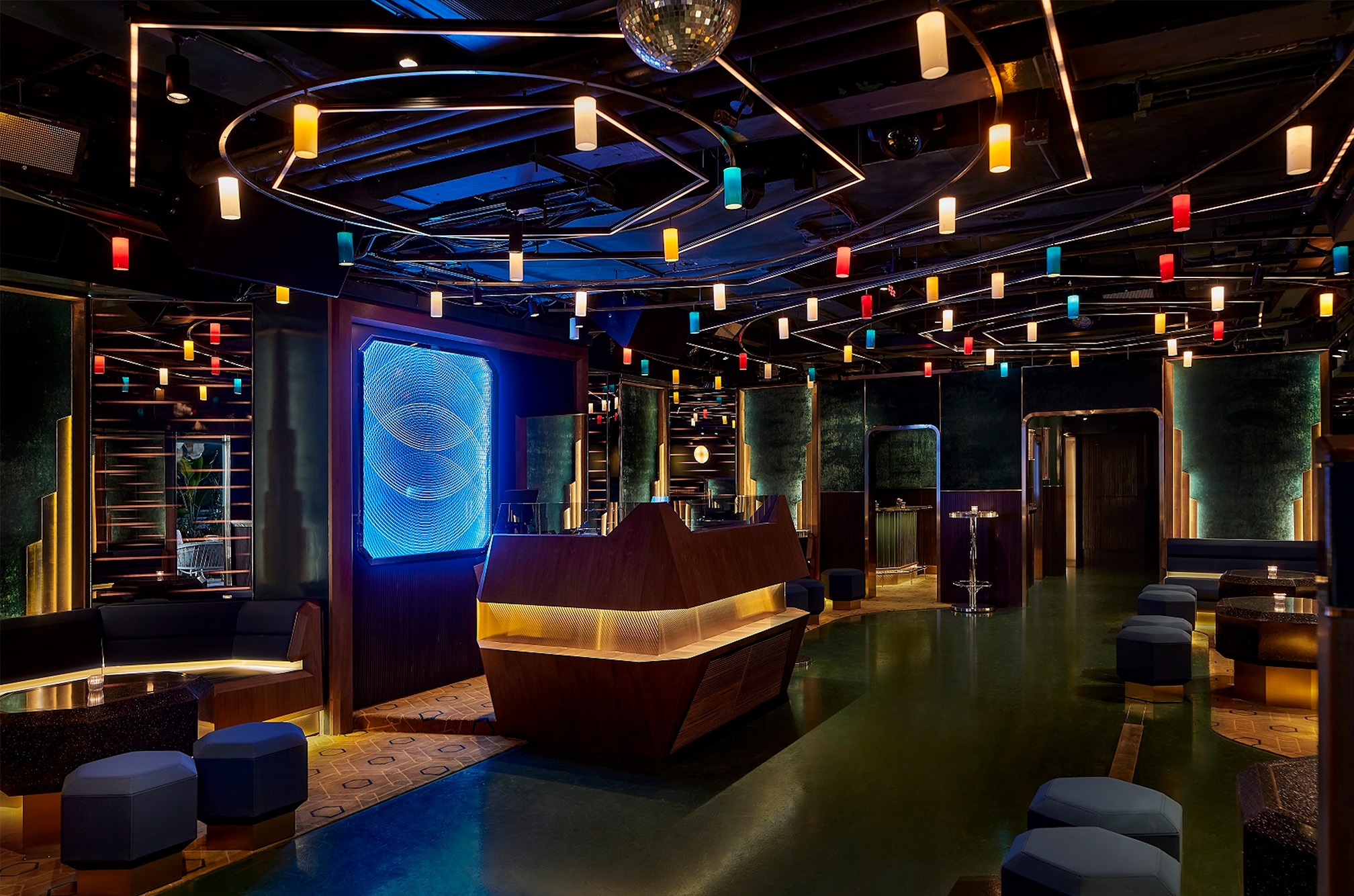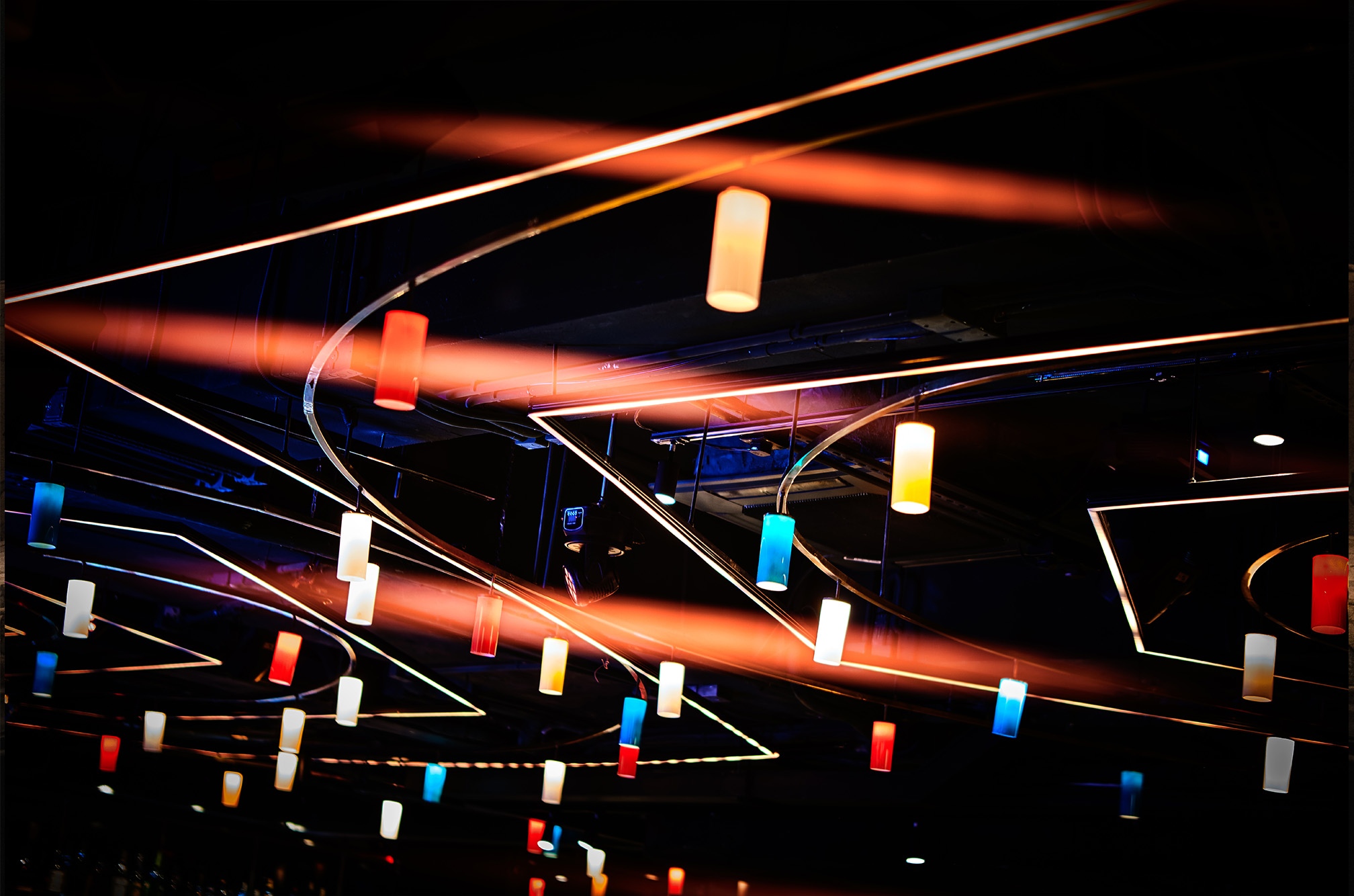 The Other Half
The Other Half
The Other Half: Unravelling the alchemy of clubpreneurship with nightlife mogul Gilbert Yeung
The man behind dragon-i, Tazmania Ballroom & Cassio has a new venture — this time with Daft Punk's Creative Director
In a world where consumption is key, balancing business goals while celebrating creativity is no easy feat. That balance also requires being committed to change and Hong Kong's once-bad-boy of nightlife Gilbert Yeung has been committed to an enlightened path of Buddhism, veganism and yoga whilst operating three late-night venues and maintaining a certifiably active social life.
GY, as he's known by his friends and those who want to be known by him, is a true stalwart of being a club owner — he's involved in every aspect of his venues from food and beverage to the design and music policy, but most chivalrously, it's his precedence of leadership that he sets for his team and peers to use at their disposal that sets his concepts jeroboams apart from the rest of Hong Kong and Asia.
While transitioning from a reputation of rebellious affairs to a path of oneness and flow, GY's outlook on his late-night business has also undergone adjustments.
His three flagship venues dragon-i, Tazmania Ballroom and Cassio are infamously known as elitist playgrounds that cater to upper echelons of a caste-like modern social blueprint, but beyond the street gossip of who racked up the biggest bill, GY has consistently instilled the essence of quality music and lifestyle. His personal taste for design and music is abundant across his spaces, most notably at Cassio which he recently remodelled with Daft Punk's Creative Director, Cédric Hervet.
In light of this, we sat down with Gilbert Yeung to talk about change, soulful voices and successfully operating some of Hong Kong's most reputable and talked-about clubs.
Music tells a lot about a person. Who are your top five favourite artists of all time?
Steve Wonder, Louie Vega, Michael Jackson, Anita Baker and Marvin Gaye.
What about artists you’ve hosted, sometimes they can surprise you. What are some of the most memorable shows you’ve ever had the pleasure of hosting?
We’ve had so many interesting artists come through, but some of the most memorable would be…
For our 11th anniversary, we had Sugarhill Gang performing and when they played ‘Rapper’s Delight’, which is my and everyone’s favourite teenage song — the whole crowd went crazy. Right after that, we had Solomun and the vibe was incredible all night.
We also did a really fun gig with William Hung from American Idol and everyone was smiling and having a good time.
I can’t forget how much fun we had with Jamiroquai for our 10th anniversary — he wanted to receive his performance fee in a James Bond briefcase right before the gig. While he was in town, he came into dragon-i for a few nights and was hanging out and break dancing all night. He was a super cool guy.
We were also lucky to have Snoop Dogg and Dr. Dre at dragon-i — they originally said they didn’t want to do a concert in Hong Kong but when they heard about us and realised our venue was so intimate, they were happy to come to us and they only had three conditions: they needed bass when they performed, they wanted McDonald’s and they needed a 60-inch TV in their hotel rooms so they could play PlayStation. They were super professional to work with and not divas at all. We’ve never had a night like that, everyone came on time at 9pm and was watching the door until they came in just before midnight.
You have an incredible knowledge and fondness for soulful house music, having hosted everyone from Louie Vega to Barbara Tucker — who’s your favourite vocalist and why?
That’s a hard one. Soul and R ‘n’ B form my roots in music. I love artists like Anita Baker, Sade, Jill Scott and Alicia Keys. I also like Barry White and Stevie Wonder — his lyrics are on another level. He had so much, I don’t know, fantasy about music. One of my favourite songs of his is ‘Pastime Paradise’, but lately, it’s ‘He’s Misstra Know It All’.
I’m not sure if I can choose a favourite. It would be between Anita Baker and Marvin Gaye. I bought her first album, Rapture, in 1987. I bought the second one in 1989 and I listened to it over and over again. She brings that gospel church style of singing into jazzy R 'n' B. I went to her concert and I actually wore a shirt and tie because I respect her so much. I ran to the stage and I gave her my tie and told her I loved her music and asked her to sing my favourite song — 'Been So Long'.
Marvin Gaye, we actually have artwork featuring him in Cassio. He was so ahead of his time, he wrote his album What’s Going On? in 1971 and he was already talking about sustainable living and how we’re destroying the world. His lyrics are so relevant, especially today! He had such an amazing voice and achieved so much despite coming from a rough childhood and his volatile relationship with his father who later shot and killed him.
What does Gilbert Yeung enjoy doing on a night off? Do you even take nights off?
On school nights I try to be good. Every once in a while, I’ll still do some ad hoc nights out during the week to catch up with my childhood friends. Some of them still like to go nuts.
I also love a good foot massage. I first started doing them 30 years ago when my brother-in-law introduced them to me. It's actually very interesting how certain parts of the foot correspond to different parts of the body. I find it very therapeutic and relaxing which is one of the reasons I eventually started Ten Feet Tall.

Enough about you. What are some of your favourite clubbing experiences around the world?
I guess like most people, I’ve had some crazy nights in Ibiza. Whenever I go there, I always hang out with my Greek friend George who is like the king of Ibiza and we have so much fun and meet lots of interesting people. I usually go to his place for dinner at around 11pm and then he’ll take a nap and join me for the afterparty at 7am (laughing). I remember there was one time we were having dinner at Lio, while we were eating, one of the girls took off her top and dived into the pool for a swim and then came back to the table topless, I offered her my top but she didn’t want it, she just sat back down and continued eating topless…
And although Mykonos doesn’t have the same intensity, I fell in love with it as soon as I arrived there 19 years ago. I just felt a special connection with the place even though the club scene isn’t as vibrant as Ibiza and I was lucky to have the inside knowledge as my friend George is Greek so he gave me his black book of recommendations — from nightlife to restaurants and beaches. Even now, I make sure I always visit Catherine which is a small family-run Greek restaurant in an alley in the old town serving the most amazing authentic food.
I’ve also had amazing nights in Japan which is one of my favourite countries, particularly at Club Yellow in Tokyo, one of the best house music nightclubs in Asia. Their sound system, interiors, music selection — it’s just incredible. One of my memorable nights there was when Louie Vega was playing: he was on at 1am and I stayed until 4am, then I went to another club before coming back at 6am and he was still playing! I left shortly after but couldn’t sleep so I went back at 8am and he was still playing, everyone was just having a great time, what a legend!
You stepped into the scene as a clubbing pioneer with Pink Mao Mao in Happy Valley, which was one of Hong Kong’s first elite clubbing spots for the movers and shakers of Hong Kong. Can you give us a timeline from then until now of how you’ve grown your entertainment empire?
In 1986, we started doing parties at Judgement AD. I brought Barbara Tucker there to do a party and in 2000, we opened Pink Mao Mao and our Wednesday nights started which quickly cultivated a following. Then, for two years, Hong Kong was very quiet. It was a transitional time, the economy was slow, the atmosphere was down. Hong Kong wasn’t as vibrant or diverse as it is now. The expat community wasn’t like it is now, we had a small crowd back in the day so all the clubs — Kee Club, Va Bene, Alibi etc, we shared the same crowd so people would go to different places on different nights and Wednesdays were our night. After two years, we were ready and we wanted to do something new. The dragon-i venue came up and we wanted it but we didn’t have enough experience so I asked my good friend Nicole Garnaut to help — she had a lot of experience in F&B so she fronted as a shareholder and luckily we managed to convince the landlord that we would be able to run a 6,000 square foot venue and do it successfully. At that time, it was a crazy idea. That’s how dragon-i was born.
When it came to expanding, my father gave me the best advice — he told me to keep all my venues close to the headquarters so it would be easier for me to manage them, I never forgot this tip so when it came to opening Tazmania Ballroom, it took me three lease terms (first it went to Illy, then FINDS, then Harlan's restaurant GOLD) but I eventually got it. I wanted to bring the pool hall vibe just like I grew up with from Toronto to Hong Kong, but to polish it and make it a lot more adaptable for the market. My friend Arnold Chan of Isometrix, who are amazing lighting designers, suggested Tom Dixon as I had liked the design when we went to Shoreditch House. We wanted something more upbeat and casual. Originally, I thought Tom would be too rustic but with our combined vision he achieved exactly what we wanted.
After that, I decided to open Cassio, it’s a slightly more intimate venue with eclectic music — somewhere I can hang out with my friends after we start the night at dragon-i and I can play my own music, it’s like an extension of my living room.
Cassio originally started as a Catalonian-inspired tapas bar and lounge with a strong sense of intimacy and eccentricity. What made you bring a Southern European concept to Hong Kong, especially to a club-orientated audience?
I went to London seven years ago and my friend Jai Waney, who started Zuma in London, gave me some recommendations including Barrafina. I loved it, the atmosphere was so good, the dishes were small and perfect for foodies as you can try a lot of different dishes. A few years later, I saw that Barrafina was designed by Andrew Martin who also designed the Pulse for us in HK. So I got Andrew to put me in touch with the Barrafina guys and I met up with one of the brothers when I was in London. We hit it off so I invited them to come and visit us in Hong Kong. They are really good restaurateurs — I took them to a lot of local places and they loved everything, they love drinking and people so we decided to collaborate with them when we first launched. In a way, it is similar to the dining concept of dim sum, where you get to try many smaller dishes than large plate meals. We collaborated with Barrafina for a while but now have our own Catalan Chef Salva Benedicto and the concept is still based around small plates.
Dragon-i and Cassio are located right across from each other on bustling Wyndham Street. Can you tell us about the social constructs of each venue, and how the patrons are similar or different from each other?
I wanted the challenge of operating three music venues with the same roots but different concepts and crowds which cross over every now and again. Dragon-i is more flamboyant, sophisticated, and wild. It’s the place to see and be seen, and the music is more uplifting house with hip hop mixed in.
Taz (Tazmania Ballroom) is approachable, fun, friendly, casual, and relaxed. The music is more hip hop and r ‘n’ b and we have a predominantly ABC (American-born-Chinese) crowd.
Cassio is a little bit more intimate, with eclectic music that we grew up with, and current music that we like now. Cassio is groovy, seductive, feminine yet edgy but inclusive. It’s for people who love music, a groovy crowd but in general, while our customers might have a preference for one of the venues, they tend to visit all three every now and again when they want a change in scenery and they know they’ll always get the best service and guest recognition which is very important to us.

The music policy adopted at Cassio runs across a wide gamut of sound from classic 90s to quality house and disco for the discerning listener. How involved are you in the music policy as the business owner and what is your process behind selecting a resident DJ?
I’ve always been interested in music — when I went to school in England, it was all about the UK Top 40 and ‘Top of the Pops’. I still remember I was so in love with the song ‘Night to Remember’ and I saw Jeffrey Daniels doing the moonwalk, so every night after lights out at 9pm, I would practice moonwalking by putting baby powder on the floor. When I moved to Toronto, I found myself at the most prominent DJ record shop as I wanted to be a DJ. I had a fake work ID as I was there on a student visa and managed to get a job there and that’s where I met my friend Dara Spheri. He was a DJ and we had similar tastes in music. He used to listen to the most soulful music ranging from deep, disco, funk, to reggae. Back then we didn’t have Shazam so if we liked a song, we would have to remember it and head back to the shop and sing it to the DJs and one of them would tell us what it was — so for me, music policy is important.
However, the process of choosing our DJs always happened very organically. I practise yoga and study Buddhism and Daoism which teaches me to go with the flow and things will work out (just like how we got to collaborate with Cedric from Daft Punk in Cassio or how Bruno Mars ended up performing in dragon-i). When you try too hard, the result isn’t there, but if you let it flow and do it with love, it works. We never go out and snatch a DJ from another venue, we always seem to come across cool people, we’ll usually go on a “date” and if we are aligned in terms of taste and vision, we’ll take it from there and see whether they can fit into one of our venues.
How have you adapted that successful and long-lasting business model to dragon-i’s younger sister club, Cassio?
You don’t run a business for 18 years without making mistakes so we try to learn from ours and not repeat them. Although we’re going with the flow, I always try to innovate, think out of the box and provide exciting experiences which we like and make them commercially acceptable. We are planning quite a lot of fun things for Cassio and dragon-i but you will have to wait and see once the restrictions start lifting.
In your opinion, why do GY’s establishments stand out from the rest and attract nightlife-revellers from around the world? Can you share some key reasons for your success in the nightlife game?
I don’t think we stand out from other outlets in Hong Kong. We always do what we believe in, we stand firm with what we like and we don’t sell out to what might be trendy right now. Service is the key. A lot of operators neglect the most important aspect of the venue: service. Recognition, having guests feel warm and special throughout their whole journey with us while they are in our venues — we always make sure they’re having a good time. A lot of our staff have been here since the beginning and have grown together with our customers from the start so when people walk in, they feel special. A lot of our staff have big personalities and have become part of our DNA.

Brothers Cédric and Nicolas Herve are known for their relationship with Daft Punk, being their Creative Director for many years. How did the original inspiration of an extended living room evolve to what you envisioned with the Herve brothers? Was there an element of a pandemic-inspired epiphany behind the redesign?
No, we actually started discussing the collaboration before the pandemic hit. Since Cassio opened in 2016, things have evolved so I wanted to transform the space accordingly — I wanted a more casual atmosphere instead of a full-on dinner venue and the layout needed to change as it was previously an open space and I wanted to create a better flow through the venue, also to channel people to the dancefloor instead of just pushing through it to get to the terrace. At the same time, I’ve always been a fan of Daft Punk and I think they were instrumental in the history of music. Cédric was their creative director and played a significant role in defining their visual identity — he designed their album covers and the stage set design for their 2014 performance at the Grammys. I love his work and Hervet’s retro-futuristic style so when the opportunity came up to work with them through my good friend Bernie Thomas, I decided to collaborate with them to execute the transformation.
I gave them a simple brief, to create an intimate and warm space where people would feel comfortable whether it’s for week-night casual small bites and hanging out with friends — or enjoying a tapas dinner, drinks and dancing till closing time at weekends. Our terrace was always very popular, and we wanted to align the inside to be more fluid and better connected with the outdoor terrace.
I gave them carte blanche and I love how they’ve merged retro-futurism and the roaring 20s into one space. The way they’ve restructured the layout and added two more bars (including the secret one) has been a huge hit with our customers as it allows for different vibes within one space — if you want to have cocktails with your girlfriends, you can sit in the front bar and if you want the full experience, the lounge is for you and VIPs have the two tables by the custom made DJ booth (which is my favourite Hervet piece in the space) which gives you access to the hidden bar via a daily changing password. Many of our customers have commented on how much they like the Hervet style and are going to pick up some of their signature pieces of furniture from Lane Crawford.
The world of clubbing and nightlife has been devastated by the pandemic. Venues and promoters have adapted to a new digital age over the last year. How do you see clubland recovering from the pandemic and what is your take on the digital takeover of clubbing from streaming to virtual clubs? Are there plans for GY to enter the digital realm of nightlife?
Although we are forward-thinking as a group, we strongly believe that people want the actual experience of being in a club as the human touch (service, meeting people face-to-face etc.) is important. We believe and hope that the new normal will be that people will start going out earlier while respecting COVID-19 restrictions. We have used livestream technology on Twitch but it was for something different — rather than commercial revenue, it was to raise funds to support our staff during the difficult times when we had to close due to government restrictions. All of our DJs from the three venues, including myself played through the night and the support from our customers and friends was heartwarming. We even had international DJ David Morales check-in. My incentive to our staff was that whatever they could raise during the evening I would match it equally with a personal donation.


